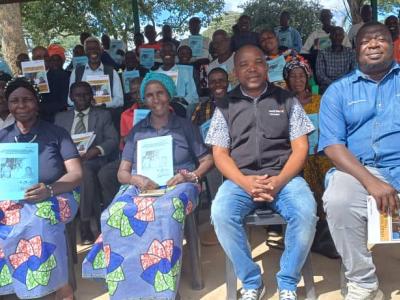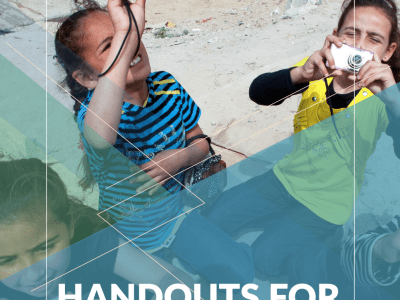press release / April 4, 2025
Banteay Meanchey achieves Open Defecation Free status, transforming public health
A child is washing her hands at a handwashing station.
article / April 15, 2025
Empowering Communities Through Citizen Voice and Action: A Path to Better Public Services in Chongwe East Area Programme
His Royal Highness Chief Bunda Bunda of the Soli people has applauded World Vision Zambia's Citizen Voice and Action (CVA) approach for transforming community engagement in Rufunsa District. Recognising the tool’s power to drive accountability and improve essential services, Chief Bunda Bunda hailed CVA as a catalyst for sustainable development in his chiefdom.
article / March 14, 2025
A New Era in Public Health Emergency Preparedness and Response in Zimbabwe
Zimbabwe has taken a significant step forward in public health emergency preparedness with the official handover of eight state-of-the-art Public Health Emergency Operations Centres (PHEOCs) by World Vision Zimbabwe to the Ministry of Health and Child Care (MoHCC).
article / April 9, 2025
World Health Day: More Than 100,000 Graces Reached With Improved Health Care
On World Health Day, on the seventh of April, we celebrate the significant advancements in maternal and child health in Angola. The World Vision Angola, through the Mais e Melhor Saúde project, has been directly contributing to the reduction of neonatal and child mortality, with notable impact in the municipalities of Cazenga, Cacuaco, and Talatona.
article / April 10, 2025
Mental Health Support through Women Empowerment in the West Bank
Over the past 18 months, the West Bank has faced a worsening humanitarian crisis. In response, World Vision has expanded its mental health support through the “Enhanced Access to Mental Health Psychosocial Support (MHPSS) Services for Vulnerable Communities” project, funded by the German Federal Ministry for Economic Cooperation and Development (BMZ). At the heart of this initiative is Group Problem Management Plus (GPM+), a community-based intervention designed to equip women with practical tools to manage stress, solve everyday problems, and regain a sense of control. Read this story to learn more about this approach.
article / April 10, 2025
Building stronger families through mental health support in the West Bank
World Vision is implementing a programme that offers women a safe and supportive space to talk openly, share their struggles, and learn how to solve problems together. Over the next three years, the project will reach 21 villages in the West Bank, helping 450 adults find ways to manage stress, solve problems, and support one another. Read Fatima's story to learn more about this approach.
article / April 7, 2025
Empowering Young Women in Malawi: Breaking barriers to health and education
Discover how Malawi's Adolescent Girls and Young Women (AGYW) project empowers young women like Loveness and Veronica to reclaim their health, education, and future through support and awareness.
press release / April 7, 2025
Placing Children at the Centre of Sustainable Development Goals – Zero Hunger, Good Health and Gender Equality
As African governments convene at the 11th Session of the Africa Regional Forum on Sustainable Development (ARFSD-11) in Uganda from 9th to 11th April 2025 , the Joining Forces Alliance a coalition of six leading child-focused organizations—is calling for urgent action to accelerate progress toward the Sustainable Development Goals (SDGs) with children at the forefront .







